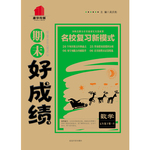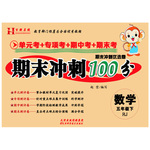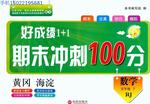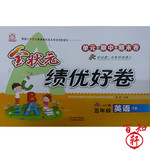题目内容
The average American child spends three to five hours a day watching TV. In 1961, the average child began to watch television at age three; however, today it is nine months. Yet, most parents think that television has bad influence on their children. For example, in the early 1970s, my parents believed that my bad eyesight was the result of sitting too close to the screen, and they therefore made my stay at least six feet from it. Today, most people have no such worry, but many new ridiculous (荒谬的) sayings have appeared:
*TV makes kids stupid. Many children watch more educational programs when they are pre-schoolers. When they grow up, they can read more books and have much better ideas to solve difficult problems than other children.
*TV makes kids violent. The real story is not so simple. Hundreds of studies show that watching violence on TV makes children more aggressive (好斗的). But a study of over 5,000 children also finds that some positive programs make children kinder. The problem is that kids are increasingly watching shows with violence instead of those suitable for their age.
*Sitting around watching TV makes kids overweight. An experiment finds that when children watch less television, they do lose extra weight; however, reducing their television time does not make them more active. The real problem lies in snacking (吃零食). A widespread habit for kids, and junk-food advertisements.
*TV helps kids get to sleep. The opposite is true. The more television children watch, the more likely they are to have irregular sleep and nap(小睡) patterns. Allowing kids to watch television is part of the problem, not the solution.
1.Which one is the advantage of educational TV programs?
A. They will make children solve difficult problems better than others.
B. they will improve children’s ability to get along with others.
C. They are likely to make children more aggressive.
D. They will make sure of children’s success in the future.
2.Why are children spending much time watching TV likely to be fat?
A. Watching TV makes children lazy and inactive.
B. Children are attracted by the food advertisement on TV.
C. Watching TV doesn’t burn up as much fat as doing sports.
D. Children like to snack while watching TV.
3.What influence does watching TV have on a child’s sleep?
A. Children are likely to sleep deeper after watching TV.
B. Children’s sleep time will be greatly reduced.
C. It will make children form a bad habit of sleeping.
D. It will make children sleep easier.
4.What is the purpose of this text?
A. To increase people’s knowledge of watching TV.
B. To warn parents of the disadvantages of watching TV.
C. To explain the bad influences that watching TV has on children.
D. To correct parents’ wrong ideas of television’s effect on children.
1.A
2.D
3.C
4.D
【解析】
试题分析:电视真的会对孩子造成诸多的不良影响吗?作者并不这么认为。
1.Many children watch more educational programs when they are pre-schoolers. When they grow up, they can read more books and have much better ideas to solve difficult problems than other children. ”可知,看更多教育节目的孩子,比其他的孩子在长大后会阅读更多的书,且在解决难题方面会有更好的主意。故该题正确答案为A.
2.The real problem lies in snacking (吃零食).”(真正的问题在于吃零食。)可知,正确答案为D.
3.The more television children watch, the more likely they are to have irregular sleep and nap(小睡) patterns.”(看电视越多的孩子,越可能养成不规律的睡觉和小睡。),故正确答案为C.
4.
考点:社会现象类文章的阅读

 期末好成绩系列答案
期末好成绩系列答案 99加1领先期末特训卷系列答案
99加1领先期末特训卷系列答案 百强名校期末冲刺100分系列答案
百强名校期末冲刺100分系列答案 好成绩1加1期末冲刺100分系列答案
好成绩1加1期末冲刺100分系列答案 金状元绩优好卷系列答案
金状元绩优好卷系列答案